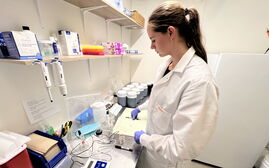
Processing Your Payment
Please do not leave this page until complete. This can take a few moments.
- News
-
Editions
-
- Lists
-
Viewpoints
-
Our Events
-
Event Info
- Women's Leadership Forum 2025
- On the Road with Mainebiz in Bethel
- Health Care Forum 2025
- On The Road with Mainebiz in Greenville
- On The Road with Mainebiz in Waterville
- Small Business Forum 2025
- Outstanding Women in Business Reception 2025
- On The Road with Mainebiz in Bath
- 60 Ideas in 60 Minutes Portland 2025
- 40 Under 40 Awards Reception 2025
- On The Road with Mainebiz in Lewiston / Auburn
- 60 Ideas in 60 Minutes Bangor 2025
Award Honorees
- 2025 Business Leaders of the Year
- 2024 Women to Watch Honorees
- 2024 Business Leaders of the Year
- 2023 NextUp: 40 Under 40 Honorees
- 2023 Women to Watch Honorees
- 2023 Business Leaders of the Year
- 2022 NextUp: 40 Under 40 Honorees
- 2022 Women to Watch Honorees
- 2022 Business Leaders of the Year
-
-
Calendar
-
Biz Marketplace
- News
-
Editions
View Digital Editions
Biweekly Issues
- April 21, 2025 Edition
- April 7, 2025
- March 24, 2025
- March 10, 2025
- Feb. 24, 2025
- Feb. 10, 2025
- + More
Special Editions
- Lists
- Viewpoints
-
Our Events
Event Info
- View all Events
- Women's Leadership Forum 2025
- On the Road with Mainebiz in Bethel
- Health Care Forum 2025
- On The Road with Mainebiz in Greenville
- On The Road with Mainebiz in Waterville
- + More
Award Honorees
- 2025 Business Leaders of the Year
- 2024 Women to Watch Honorees
- 2024 Business Leaders of the Year
- 2023 NextUp: 40 Under 40 Honorees
- 2023 Women to Watch Honorees
- 2023 Business Leaders of the Year
- + More
- 2022 NextUp: 40 Under 40 Honorees
- 2022 Women to Watch Honorees
- 2022 Business Leaders of the Year
- Nomination Forms
- Calendar
- Biz Marketplace
Bill in Maine Legislature aims to create life science innovation center
 Photo / Courtesy The Roux Institute
There are 587 life science companies in Maine, employing nearly 10,000 people. But there’s potential for more.
Photo / Courtesy The Roux Institute
There are 587 life science companies in Maine, employing nearly 10,000 people. But there’s potential for more.
A bill introduced to the state Legislature would create a new organization aimed at advancing Maine’s life sciences sector, one of the fastest growing areas of Maine’s economy.
LD 1643, sponsored by state Sen. Teresa Pierce, D-Cumberland, asks lawmakers to establish and provide seed funding for a Life Science Innovation Center, which would serve as a centralized coordinating organization, according to a news release.
The organization would provide infrastructure to support innovation and research and promote Maine as a destination for life sciences by focusing on several areas:
- Strengthen the talent pipeline within Maine
- Enhance research, patent generation and commercialization efforts
- Improve business development and attraction
- Advocate for policies, grant funding and partnerships that enhance Maine’s competitiveness
“Maine has a robust life science ecosystem, but we are falling behind other states that are making significant investments to attract companies and talent and taking strong action to mobilize their state resources to advance growth,” said Agnieszka Carpenter, executive director of Bioscience Association of Maine, or BioME, and a 2023 Mainebiz Women To Watch honoree.
“Creating the Life Science Innovation Center will provide this vital sector of Maine’s economy with the tools it needs to be competitive," she said.

BioME is a trade organization that promotes the industry’s steady growth, interprets its benefits to the public and influences pertinent public policy.
BioME, with strong input from its partners and collaborators, was the requester of the bill, Carpenter told Mainebiz.
There are 587 life science companies in Maine, employing nearly 10,000 people with an average salary of $108,000 and having the potential to create more high-paying jobs and opportunities, according to the release.
However, Maine ranks 37th in the nation for research and development activity.
$2M allocation
The bill requests a one-time $2 million allocation in fiscal year 2025-26 and fiscal year 2026-27 for the center’s startup costs.
“The specific allocation of the $2 million appropriation will ultimately depend on the strategic direction set by the center’s board of directors and leadership during its first year of operations,” said Carpenter.
The bill would establish a Maine Life Science Innovation Fund to receive funds from the state and other sources to support the center’s operations and initiatives. The fund’s uses would include investments, grants, loans and incentives to advance the life science sector, facilitating clinical trials and providing support for new or expanding businesses.
The bill defines “life science sector" as being related to living organisms and life processes for the purpose of improving human, animal and environmental health, including business, manufacturing, research, education and other activities.
The center would be governed by a board of directors appointed by the governor and subject to confirmation by the senate.
Generally speaking, said Carpenter, the center would focus on targeted initiatives aimed at strengthening the foundation of Maine’s life sciences ecosystem — cultivating talent, enhancing infrastructure, and increasing access to capital. The efforts would align with the state’s broader economic development objectives, innovation agenda and strategic priorities in health, climate resilience and sustainability.
Statewide coordination
The center would be an organization, not a physical facility. The organization would be focused on advancing and strengthening Maine’s life sciences ecosystem.
“Its foundation would be built on strategic leadership and human capital, rather than brick-and-mortar infrastructure,” said Carpenter. “The emphasis will be on driving statewide coordination, investment and program development to support long-term industry growth.”
The proposed center and BioME share a common goal of advancing the life sciences in Maine, but their roles and approaches would be different.
“As a trade association, BioME serves as the voice of Maine’s bioscience industry,” said Carpenter. “Our focus is on fostering community, advocating for the sector and providing networking, workforce development and educational opportunities to support our members.”
She continued, “In contrast, the innovation center would be designed as a state-backed economic development entity with a broader mandate — to strategically invest in infrastructure, talent and innovation to accelerate industry growth at a statewide level.
“Modeled after similar organizations in Massachusetts and Rhode Island, the center would play a more direct role in shaping and implementing long-term strategies for Maine’s life sciences ecosystem.”
The Maine State Legislature’s Joint Standing Committee on Housing and Economic Development will conduct a hearing on LD 1643 on April 24 at 4:30 p.m.
Co-sponsors
The bi-partisan bill is co-sponsored by Rep. Sam Zager (D-Portland) and Sens. Rick Bennett (R-Oxford), Marianne Moore (R-Washington) and Cameron Reny (D-Lincoln). Other co-sponsors include Reps. Kristen Cloutier (D-Lewiston), Jack Ducharme (R-Madison) Tracy Gere (D-Kennebunkport), Daniel Sayre (D-Kennebunk) and Holly Stover (D-Boothbay).
“Maine’s future depends on good-paying jobs, and life sciences has a proven track record in creating economic growth for our state,” said Sen. Rick Bennett (R-Oxford). “Life science jobs have increased 31% in the last five years, making it one of our strongest growth sectors. We need to ensure it remains competitive.”














0 Comments